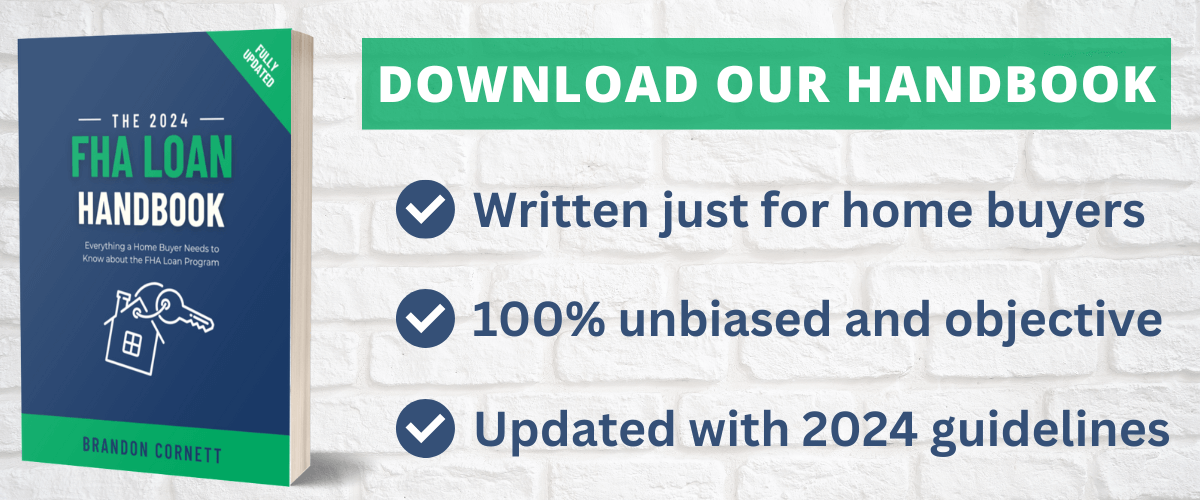Question: “We made an offer to buy a house with an FHA loan. A few days later, our mortgage lender sent an appraiser to figure out how much the home is worth. The FHA appraisal was below the purchase price amount we have agreed to pay. About 20K below, actually. Now our lender says they are unwilling to fund the loan because of the low appraisal amount. What options do we have in this situation, as home buyers?”
Having an FHA home appraisal come in below the purchase price is a fairly common scenario. (Of course, that probably doesn’t make you feel any better.) You basically have three options. The seller can reduce the sale price to match the appraised value. You could get a loan for the appraisal amount, and then pay the difference out of pocket. Or you could simply walk away.
Read: FHA appraisal process, at a glance
When listing their homes for sale, sellers often set their asking prices above market value. This happens for a variety of reasons. Sometimes the seller doesn’t understand the current state of the local housing market, and how their home values have changed in recent years. In other cases, the seller is simply greedy and wants to sell for more than the home is worth.
Whatever the reason for overpricing, it can lead to a situation where the FHA appraisal amount falls short of the mutually-agreed-upon purchase price. So what do you do in this situation?
Low FHA Appraisal Below Purchase Price
When the appraisal comes in below the asking price, there are several things you can do:
- The homeowner / seller could reduce the selling price to match the appraised value. This way, your FHA lender will be willing to move forward with the loan. This is the ideal scenario for you, as the buyer.
- You could get a loan for the appraised value (or a portion of it, minus your down payment) and then pay the remainder out of your own pocket. This is a less appealing solution from the buyer’s perspective, because you are basically paying more for a home than it’s currently worth. Aside from a few investment scenarios, it rarely makes sense to do this.
- If the seller refuses to lower the purchase price to reflect the FHA property appraisal, you could walk away from the deal and look for another house that meets your needs. It happens.
Generally, the best-case scenario is to ask the seller to lower the price to match the appraised value. That way, the deal can move forward. This is in everyone’s best interest. After all, the homeowners probably want to sell the property as much as you want to buy it. So it only makes sense to keep the process on track.
Related: When does the appraisal happen?
But logic and reason don’t always win the day, when it comes to real estate transactions. Sometimes, a seller’s judgment can be clouded by emotional attachment, financial greed, or a simple lack of market awareness. So they might be rigid with their pricing and unwilling to negotiate. If that’s the case, you might have no option but to find another home to purchase — one with a more realistic asking price.
Using Comparable Sales to Validate the Price
Sometimes FHA appraisers make mistakes. They’re not infallible. So it’s wise to assess the value of a home you are considering for yourself, or with the help of your real estate agent. One of the ways to do that is by using recent sales data.
Comparable sales (or “comps” for short) will help you evaluate the seller’s asking price. Before making an offer on a house, you should examine recent home sales in the area. Pay particular attention to properties that are similar, or comparable, to the one you are considering. These comps will help you determine the market value of a particular house. Thus, they can also help you decide what to do when the FHA appraisal is lower than the proposed purchase price.
Consider the difference:
- If the comps support the seller’s asking price, but the FHA appraisal still comes in low, then the home appraisal might be inaccurate.
- If the comps support the appraiser’s lower estimate, then the seller might be asking too much.
It’s usually best to walk away from a deal where the homeowner is asking too high a price for the house. But every real estate scenario is different, so there may be an argument for paying above the FHA appraisal in certain cases.
In the end, it comes down to (A) the current market value of the house, (B) the willingness of the lender to fund the loan, and (C) how badly you want the house. These three factors will determine your course of action.
